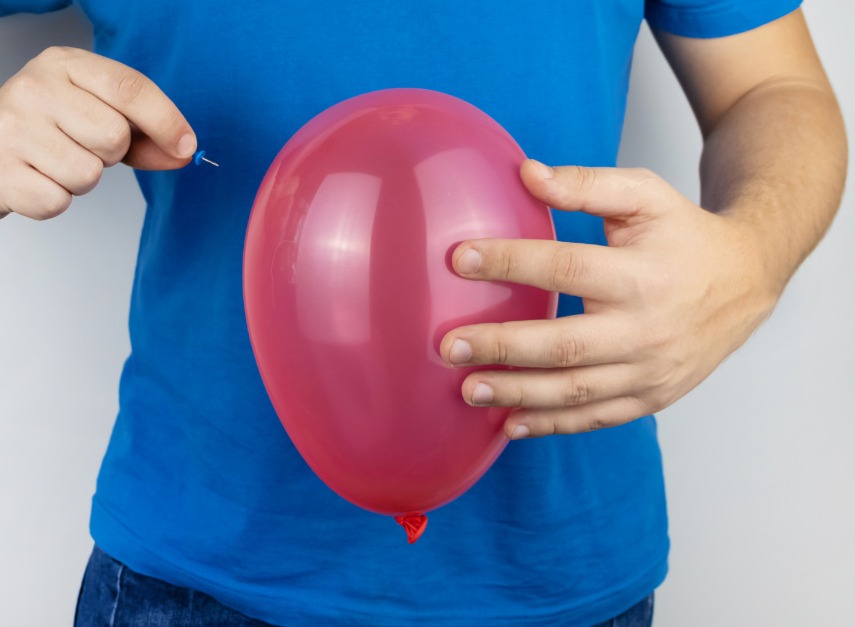- Home
- Share
- Forum
- General forums
- Good to know
- What do you do to manage your stress?
What do you do to manage your stress?
- 92 views
- 0 support
- 4 comments
All comments

Courtney_J
Community managerGood advisor
![]()
Courtney_J
Community manager
Last activity on 08/08/2022 at 11:09 AM
Joined in 2020
1,340 comments posted | 55 in the Good to know group
6 of their responses were helpful to members
Rewards
-
Good Advisor
-
Contributor
-
Messenger
-
Explorer
-
Friend
Hello everyone,
How are you today? Have you seen this older discussion? ![]()
Are you someone who feels stress often? If so, what are your tips for dealing with it?
Feel free to share and discuss here!
Also, if you haven't seen it already, we've just published an article about mindfulness, a stress-management technique: Mindfulness: How can it benefit our health?
Take care,
Courtney
See the signature
Courtney_J, Community Manager, Carenity US
![]()
kmkd49
Good advisor
![]()
kmkd49
Last activity on 10/21/2024 at 8:01 PM
Joined in 2021
13 comments posted | 2 in the Good to know group
Rewards
-
Good Advisor
-
Contributor
-
Committed
-
Explorer
I handle stress but either doing my crocheting or reading a book. I do both daily. Besides taking care of myself, I take care of my disabled son, my husband, and I am responsible for an uncle that has dementia that is with a caregiver.
See the signature
Kathy Donato
![]()
uncleanatol
Good advisor
![]()
uncleanatol
Last activity on 11/19/2024 at 7:13 PM
Joined in 2019
151 comments posted | 22 in the Good to know group
8 of their responses were helpful to members
Rewards
-
Good Advisor
-
Contributor
-
Messenger
-
Committed
-
Explorer
-
Evaluator
I handle stress by making a cup of tea, bringing it into the living room, and sitting in my comfortable La-Z-Boy chair. I lean back, put my feet up, and turn on the Music Choice channel on the TV. I set it to light classical, sip my tea, close my eyes, and just let the music wash over me. I invariably doze off for a little while and when I wake up I'm relaxed and able to deal with what caused the stress in the first place.
See the signature
Judith A Carlson
![]()
Ela786
![]()
Ela786
Last activity on 05/06/2021 at 5:14 PM
Joined in 2021
3 comments posted | 1 in the Good to know group
Rewards
-
Explorer
I find that as a mother of 4 I can do little to manage stress but can still help myself some. Most often is telling myself I'm just lucky and blessed. Second, I try to make some time to have one on one with my sister who's my best friend. That kinda keeps me grounded... sometimes you need someone to tell you hey your not just stronger, I've seen you there. Let's get there again!!
Give your opinion
Articles to discover...
Subscribe
You wish to be notified of new comments
You have been subscribed









Lee__R
Community managerGood advisor
Lee__R
Community manager
Last activity on 04/03/2020 at 5:04 PM
Joined in 2018
1,338 comments posted | 114 in the Good to know group
2 of their responses were helpful to members
Rewards
Good Advisor
Contributor
Messenger
Explorer
Friend
Top chef
In a major setback for Republicans, the House rejected “right-to-try” legislation Tuesday evening that would have allowed seriously ill patients to bypass the Food and Drug Administration to get access to experimental treatments.
Republican backers brought up the measure under a suspension of the rules, which does not allow for amendments and requires approval from two-thirds of those present to pass. The legislation failed on a vote of 259 to 140.
Rep. Frank Pallone Jr., Jr. (D-NJ), the ranking member of the Energy and Commerce Committee who vehemently opposed the bill, said in a statement that the vote meant the House had “protected patients and supported the FDA’s continued role in approving experimental treatments that may help save a patient’s life.” He said the legislation should not have been brought to the floor under the abbreviated process, rather than through the regular procedure that includes committee consideration.
The Republicans pushing the legislation, Commerce Committee Chairman Greg Walden (R-Ore.) and Health Subcommittee Chairman Michael C. Burgess (R-Tex.), expressed disappointment at the outcome. “For months we sought to strike the right balance by allowing patients greater access to these unapproved treatments and therapies while also ensuring proper patient protections,” they said in a joint statement. “This bill does just that.”
The vote capped an emotionally charged debate that kicked into high gear over the weekend after Walden and Burgess released their bill and said they planned a quick floor vote. The Senate passed a similar measure last summer that was pushed by Sen. Ron Johnson (R-Wis.).
On Monday, more than 75 patient groups, including the American Cancer Society Cancer Action Network, the American Lung Association and the Cystic Fibrosis Association, had sent a letter to House leaders saying the bill “would not increase access to promising therapies” because it didn't deal with the main barriers to experimental drugs — the cost of drugs and company restrictions on making therapies available outside of clinical trials.
And by skirting the FDA, the letter added, the proposed right-to-try pathway would be “less safe” for patients than the agency's existing program, called expanded access, for overseeing the use of unapproved therapies outside of trials.
The groups' opposition came as the conservative Goldwater Institute and other supporters of the bill touted it as a critical lifeline for desperate patients who are ineligible for clinical trials. Thirty-eight states have passed right-to-try laws, and a federal law would block the government from preventing patients from taking advantage of them.
“Right to Try provides a new path for people who are out of options,” said a letter circulated by Goldwater and signed by 20 groups, including the Abigail Alliance for Better Access to Developmental Drugs, Fire Fighters with Parkinson's disease and Cures Within Reach. Under the House legislation, patients first would have had to exhaust all other treatments, and the experimental drugs would have had to complete preliminary safety testing.
The Institute blamed the legislation's failure on “scare tactics, falsehoods and innuendo.”
The intense, emotional debate surrounding the issue masked a fundamental question: Would a federal right-to-try law have much impact on patients?
The FDA's expanded-access program, which receives more than 1,000 requests a year for experimental drugs, already approves 99 percent of the appeals. But drug companies often balk at providing experimental drugs outside of clinical trials, and the federal right-to-try legislation did not compel pharmaceutical firms to provide sought-after therapies.
“This is a right-to-ask bill, not a right-to-try bill,” Holly Fernandez Lynch, assistant professor of medical ethics at the University of Pennsylvania Perelman School of Medicine, said of the House measure.
The House bill did include some changes from the Senate legislation that were designed to assuage concerns raised by critics and by FDA Commissioner Scott Gottlieb. In congressional testimony in October, Gottlieb suggested that lawmakers limit the scope of the legislation to avoid undercutting the FDA's drug-review process.
Under the Senate bill, for example, patients are eligible for right to try if they have a “life-threatening disease or condition.” Gottlieb suggested that the category be narrowed to the “terminally ill.” The House bill, taking a step in that direction, said patients would be eligible if they are likely to die in a “matter of months” or have a disease that would result in “significant irreversible morbidity that is likely to lead to severely premature death.”
Republican committee aides said that the House legislation also included more robust informed consent requirements than the Senate bill and would have required that doctors immediately notify the FDA about adverse events, something the Senate legislation does not include. Under both chambers' bills, the FDA could consider adverse events as part of a drug-approval review, but only if such complications are “critical to determining the safety” of the drug.
The House bill broadened liability protections to manufacturers and others who are taking part either in the right-to-try pathway or in the expanded-access program.
Right-to-try advocates say the legislation — by simplifying and shortening the process for obtaining unapproved drugs and by expanding and clarifying the liability protection — would have encouraged more patients, doctors and pharmaceutical firms to participate.
Critics celebrated its demise. “We applaud the House members who voted against the seriously flawed False Hope legislation, which would have created a dangerous, uncharted pathway for accessing experimental medications that have not been shown to be safe or effective,” said Michael Carome, director of Public Citizen's Health Research Group, said in a statement. “The bill would have exposed vulnerable patients to risks of serious harm, including dying earlier and more painfully than they otherwise would have, without appropriate safeguards.”
What is your opinion? Should seriously ill patients have the right to bypass the FDA to try experimental drugs?
Washington Post